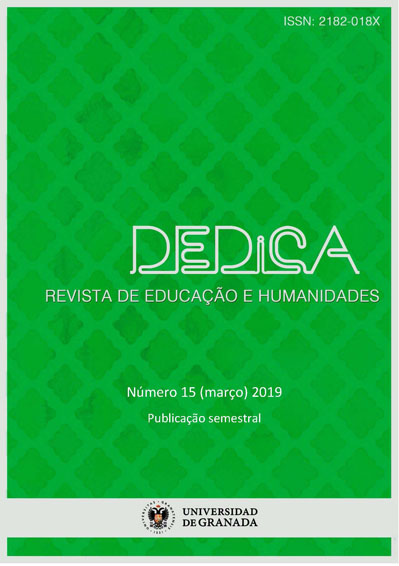Heritage in Secondary Education. Results of a research project in the city of Elche, Alicante
DOI:
https://doi.org/10.30827/dreh.v0i15.7205Keywords:
Curriculum research, cultural heritage, Anthropology of Education, UNESCOAbstract
Based on a brief reflection on the concept of heritage, this article approaches the uses that this concept has within the educational field. Taking as a sample several centers of secondary education in the city of Elche –which has three World Heritage Sites that have been recognized by UNESCO-, and through a method of investigation based in the semistructured interview, this research tries to approach the reality of the classrooms with the aim of analyzing how heritage knowledge is transmitted within the educational field. The results show that the "heritage education" is something hardly visible in high schools, and the final discussion focuses on the debate about the need to “educate in heritage”, concluding that this can be positive for students, since this type of education can help them to better understand the context in which they live inDownloads
References
Carmona Zubiri, D.; Travé Molero, R.; Nogués Pedregal, A.M. (2015). Los misterios del patrimonio y el turismo en Elche. Lo global (UNESCO) en lo local (identidad). Revista Andaluza de Antropología, 8, 113-140. Disponible en: http://www.revistaandaluzadeantropologia.org/uploads/raa/n8/nogues.pdf
Decreto 112/2007, de 20 de julio, del Consell, por el que se establece el currículo de la Educación Secundaria Obligatoria en la Comunitat Valenciana. Diari Oficial de la Comunitat Valenciana. Valencia, 24 de julio de 2007, núm. 5562, pp. 30402-30587.
Decreto 102/2008, de 11 de julio, del Consell, por el que se establece el currículo del bachillerato en la Comunitat Valenciana. Diari Oficial de la Comunitat Valenciana. Valencia, 15 de julio de 2008, núm. 5806, pp. 71303-71547.
Delgado, M. (2005). Ciudades de mentira. El turismo cultural como estrategia de desactivación urbana. Archipiélago, 68, 17-27.
García Calvo, A. (2005). ¿Qué falta les hará a las pirámides de Egipto que vaya yo a verlas? Archipiélago, 68, 29-31.
Hafstein, V. (2014). Cultural heritage. En R.F. Bendix & G. Hasan-Rokem, A Companion to Folklore (pp. 500-519). West Sussex: John Wiley & Sons.
Miquel Juan, M. (1996). Anotaciones sobre el Misterio de Elche. Ars Longa, 7-8, 291-297.
Molina Puche, S.; Muñoz Cutillas, R.E. (2016). La opinión del profesorado de educación secundaria sobre el papel del patrimonio en la enseñanza formal de las ciencias sociales: un estudio de caso. Revista Complutense de Educación, 27(2), 863-880. doi: 10.5209/rev_RCED.2016.v27.n2.48411
Real Decreto 1631/2006, de 29 de diciembre, por el que se establecen las enseñanzas mínimas correspondientes a la Educación Secundaria Obligatoria. Boletín Oficial del Estado. Madrid, 5 de enero de 2007, núm. 5, pp. 677-773.
Rodríguez Becerra, S. (1999). Patrimonio cultural y patrimonio antropológico. Revista de dialectología y tradiciones populares, LIV(2), 107-123.
Sánchez-Carretero, C. (2012). Hacia una antropología del conflicto aplicada al patrimonio. En B. Santamarina (coord.), Geopolíticas patrimoniales. De culturas, naturalezas e inmaterialidades (pp. 195-210). Alzira: Germania.
Santamarina, Beatriz (2017). El patrimonio inmaterial en el País Valenciano: una explosión muy tangible. Revista andaluza de antropología, 12, 117-143. Disponible en: http://www.revistaandaluzadeantropologia.org/uploads/raa/n12/santamarina.pdf
Smith, L. (2006). Uses of heritage. Nueva York: Routledge.
Vives Ramiro, J.M. (2006). La Festa o Misterio de Elche. Anuario Musical, 61, 23-54












